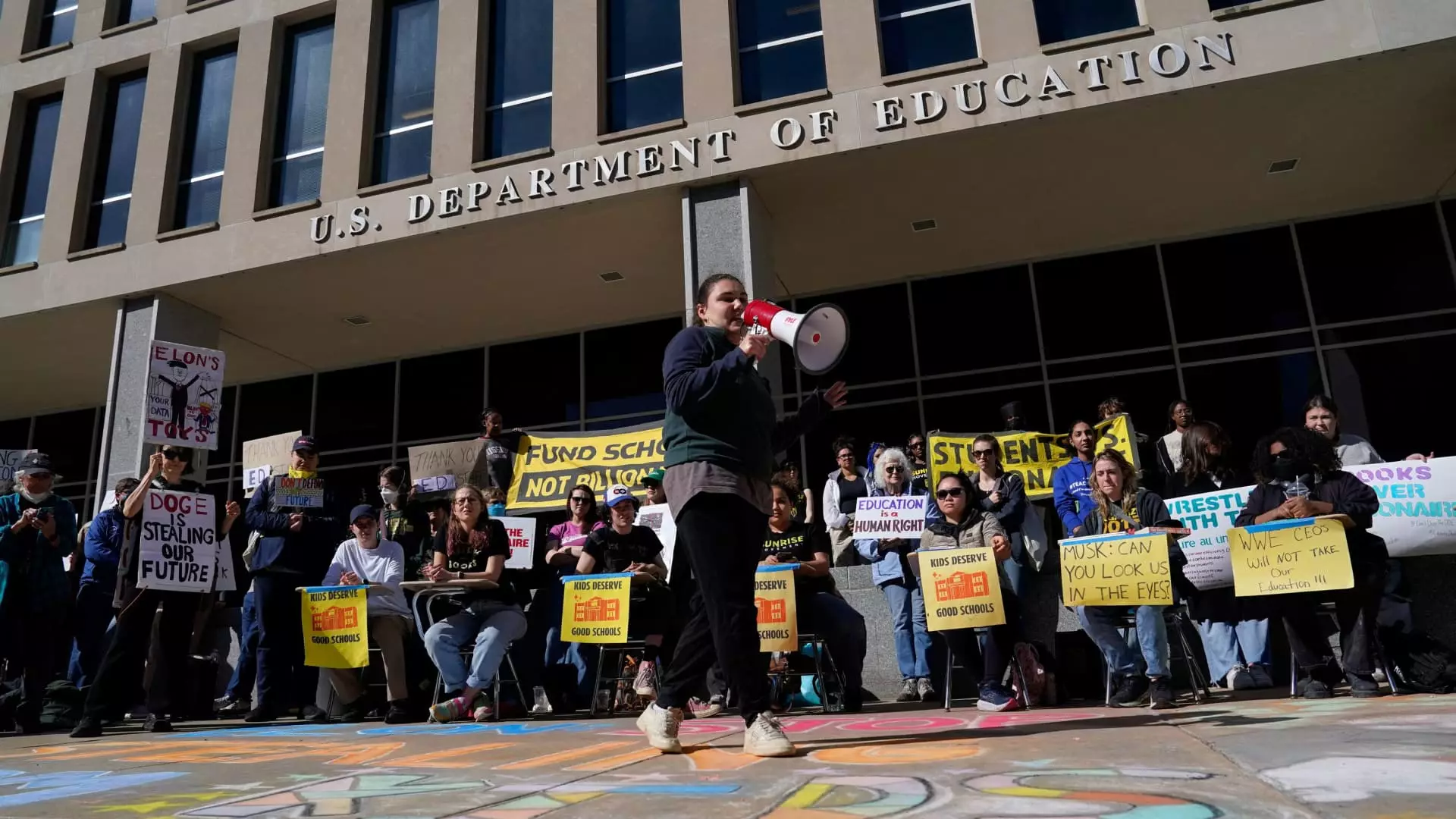The recent maneuvers by the Trump administration to gut the Department of Education stand as a blatant attack on the very foundation of educational integrity in the U.S. By seeking to overturn a court ruling that mandates the reinstatement of more than 1,300 employees, the administration is sending a grave message: educational equity and access are expendable in its pursuit of streamlined governance. Solicitor General D. John Sauer’s assertion that the forced layoffs are a necessary step toward efficiency overlooks the fundamental role these employees play in safeguarding educational opportunities for all. The administration’s strategy to terminate staff tasked with enforcing civil rights protections is not just reckless; it’s an act that betrays the principles upon which this country was built.
The Erosion of Civil Rights Oversight
Under the Trump administration, seven out of twelve offices responsible for ensuring civil right protections have been shuttered. This dismantling of enforcement mechanisms is alarming, particularly when considering the rising concerns surrounding discrimination in educational settings—discrimination based on race, disability, and socioeconomic status, to name just a few. The judge’s decision to issue a preliminary injunction underscores the serious implications of these cuts. The judicial response is not merely a bureaucratic hurdle; it symbolizes a necessary pushback against an administration that has shown little regard for the diverse needs of American students. In essence, the administration is choosing to prioritize its political agenda over the rights of students to receive an equitable education.
Financial Aid: A Lifeline Under Threat
Furthermore, the elimination of the entire team overseeing the Free Application for Federal Student Aid (FAFSA) represents an unsettling disregard for the financial challenges faced by millions of American families. With about 17 million families relying on FAFSA each year to secure federal student aid for higher education, the implications of such a cut are profound. This stark reduction in oversight not only jeopardizes financial accessibility for students but also sends a chilling message about whose educational journeys matter in the eyes of the government. This neglect betrays a fundamental misunderstanding of the importance of education as an equalizer in society.
Legal Ramifications and Public Backlash
The administration’s litigious push to reinstate its position reflects a deeper commitment to dismantle an institution that was pioneered for the benefit of all—an agency rooted in the vision of former President Jimmy Carter. The array of lawsuits filed against the administration by states, including Michigan and New York, depicts a collective response that transcends partisan lines; it illustrates a widespread recognition that education is a universal right deserving of protection. The backlash, spearheaded by the American Federation of Teachers and various state entities, underscores the urgency with which communities are mobilizing to defend education.
As we witness this concerted effort to undermine public education, it is crucial to recognize the stakes involved. The ramifications of such decisions could reverberate through generations, shaping access, equality, and opportunity in ways that will define our national identity for decades to come. The fragmentation of the Department of Education is not merely a political maneuver; it is an existential threat to the core values upon which our educational system stands.

